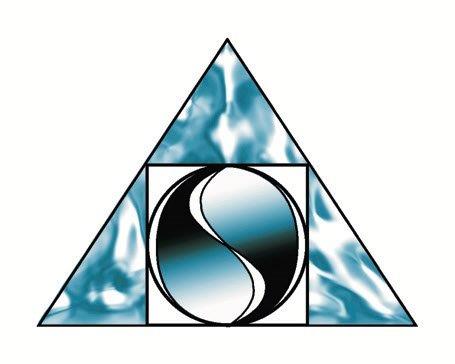Founderitis
“Great talents are the most lovely and often the most dangerous fruits on the tree of humanity. They hang upon the most slender twigs that are easily snapped off.” − C. G. Jung
I have had a number of clients with issues about their bosses and wanted to know how to handle or work with them in a better way. They were the founders of the organization, non-profit, or a group that these clients worked for and couldn’t quite pin the difficulty. The main issue seemed to be that the client was not heard, valued, and their contribution of new ideas, ways, and means was not well received or were just plain ignored.
Someone told me a long time ago that a group only grew as much as the leader of the group grows and that is why many groups fall apart after a short period of time. I have since come to find out that there is a term for this dynamic called Founder’s Syndrome or Founderitis.
In my own experience of attending various types of groups through the years, I noticed that if it is a group of only women, it will shortly start to fall apart. Perhaps one woman is the founder and just doesn’t let anyone else contribute or participate. There doesn’t seem to be a staying power. The members of the group just drop out, stop coming, and then the group is over. Many groups are advertised as in-depth, advanced levels of training, or it is promoted as a professional level of advancement, etc….. However, after a short period of time, the level of knowledge offered seems to sink to a basic level of information leaving some of the attendees frustrated and wanting more. Part of the reason seems to be that the group will revolve around the energetic knowledge of the lowest common denominator. I am not talking about the female’s or the male’s intelligence or intellectual knowledge; I am talking about the dynamics of feminine and masculine energy. Some founders, whether male or female, have the initiating energy to start the group but then are not able to sustain it or handle the sprouting of new roots and shoots as the group becomes aware of growth issues.
Sometimes a person unfamiliar with the basic concepts of the group will ask beginning questions and then the group descends energetically, and everyone seems to be starting all over again. Eventually, greater knowledge about a topic is offered to a group, and for some attendees, it is not necessarily understood and so the group still returns to the basics.
For example, there are times when a woman’s group lets a male or some males join the group, become a member or members on the board. Then the group is revived with new life and energy. Even just one male’s energy seems to energetically fertilize and invigorate a group because the feminine energy is receptive and masculine energy is assertive. Conversely, an all-male group seems to focus largely of the facts, data, and how to fix something with logic and reasoning. The feminine element is missing in the group. There is a lack of receptive feeling values that can color and give some warmth to the group. Just to clarify I am not saying that there should not be all female or male groups. I am mentioning group dynamics that may shed some light on a group that you might belong to for your personal understanding.
Diagnostic Symptoms
You can easily recognize the symptoms of “Founders Syndrome or Founderitis” when your founding leader or boss has this syndrome. This syndrome can be seen in either a male or a female lead. It is also an ego inflation whereby their sense of self-importance appears puffed up in their personality, and they act condescendingly toward others or act superior to the group members. These symptoms can apply to any kind of new group, business, or non-profit organizations.
The founder may be unwilling to attend any group strategy meetings and are adverse to staffing, planning, or brain storming to create fresh initiatives, or introduce new policy. Adhering to what worked before is the way to keep going. Even though the founder may have had the initial energy to start the organization but then is not able to keep up with the growth and might fear losing their self-importance. The founder’s behavior consists of hesitation, procrastination, and withholds approval in decision making even though fresh strategies are required for growth. The founder doesn’t consult with others or delegate any new responsibilities, and if their authority is questioned or disputed, then there are rebukes and objections accompanied by hostile tones.
Here are nine ways you can avoid or overcome Founder’s Syndrome according to Jeff Jowdy in the business arena, and this list can actually be adapted to any type of new group.
- Create checks and balances. In your bylaws and other early policies, prohibit nepotism and have a board of both insiders and outsiders.
- Ensure that your board is advised by outside counsel on CEO compensation and evaluation.
- Be open to changing roles. As the organization grows, the founder may need to move out of operations and hire a chief operating officer and other senior team members, for example.
- Bring in new people . As you grow, you will need new talents and fresh perspectives from your staff and your board.
- Have an exit strategy. As hard as it is, a founder shouldn’t necessarily plan to be there forever. From the start, envision how leadership will transition and how the founder might be involved in the organization in the future — i.e., founder, president emeritus.
- Establish succession planning for staff and a development program for the board. With this in place, it will minimize the perception of anyone being indispensible to the organization.
- Have an accountability partner, group or coach outside the organization to provide honest feedback to the founder.
- Have the founder embrace continuing to improve his or her skills so he or she evolves as the organization does through formal education (a master’s degree in nonprofits or an MBA, for example), coaching, a network of nonprofit CEOS and site visits to other organizations.
- Increase planning, and establish systems as your organization grows. Conduct strategic planning involving key constituencies, and don’t allow any one person to control the process to a specific outcome.
“The most intense conflicts, if overcome, leave behind a sense of security and calm that is not easily disturbed. It is just these intense conflicts and their conflagration that are needed to produce valuable and lasting results.” − C. G. Jung
© Ozimkiewicz







